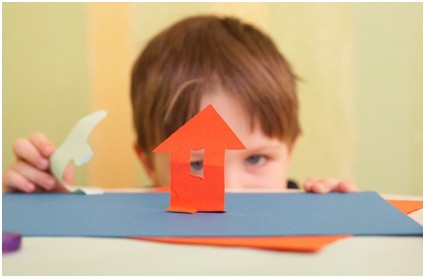The real (estate) value of public schools
USINFO | 2013-12-27 11:15

How free public education ends up costing parents a pretty penny.
How do you value your child’s education?
If this sounds like a chowder-headed question to ask a group of conscientious parents, it’s worth noting that economists have been parsing this issue for decades. But they’re not in search of feel-good maxims like “My children are priceless, so educating them is of the highest value to me.”
No, we’re talking cold, hard dollars and cents. As any real estate agent worth her smartphone knows, high-performing schools and higher price per square foot seem engaged in an eternal tango. The question that vexes economists is of the chicken-and-egg variety: Do better schools lead to higher home prices or the other way around?
Public school price bump
In many cities such calculations are hard to do without an advanced degree in statistics, but sometimes the value of public schools is starkly evident. Piedmont, Calif., a small, upscale city surrounded by economically diverse Oakland, is known for its top-rated schools. According to a recent scan of the multiple listing service, homes in Piedmont run at least $100K more than an Oakland home of the same size and quality located directly across the street.
In Cupertino, Calif., where virtually all the elementary schools rake in stratospheric scores on standardized tests, the price of run-of-the-mill ranch homes can go for several hundred thousand dollars more than those in nearby communities with mediocre schools. This premium doesn’t deter some parents: One father who moved his family so his children could attend the top-rated Stevens Creek Elementary School in Cupertino told the New Yorker he'd circled the perimeter of the school district on a map and given it to his real estate agent.
When buying into the best goes bad
Jessica Gottleib, a mother and blogger based in Los Angeles, made a similar calculation, but it backfired. “I bought into a ‘good school’ neighborhood,” she says. “By moving just a few blocks away, we could have saved about $200,000.”
Gottleib discovered the problem with long-term bets on a school based on its past performance: You can’t control its future. After she moved her family into the new home, the high-performing neighborhood school — as Gottleib put it — “tanked.” Her children ended up in private schools. Now she cautions other parents to avoid making the same mistake: “I routinely tell moms to save their money and buy the house they love in the neighborhood they love.”
Share this page